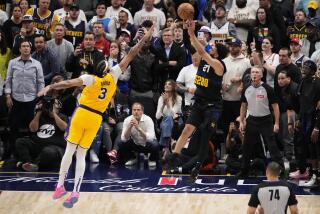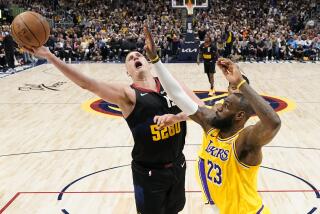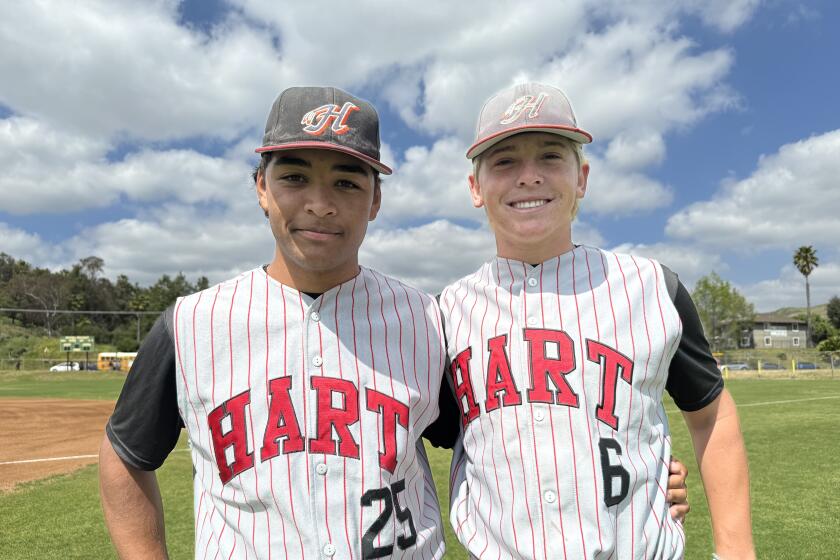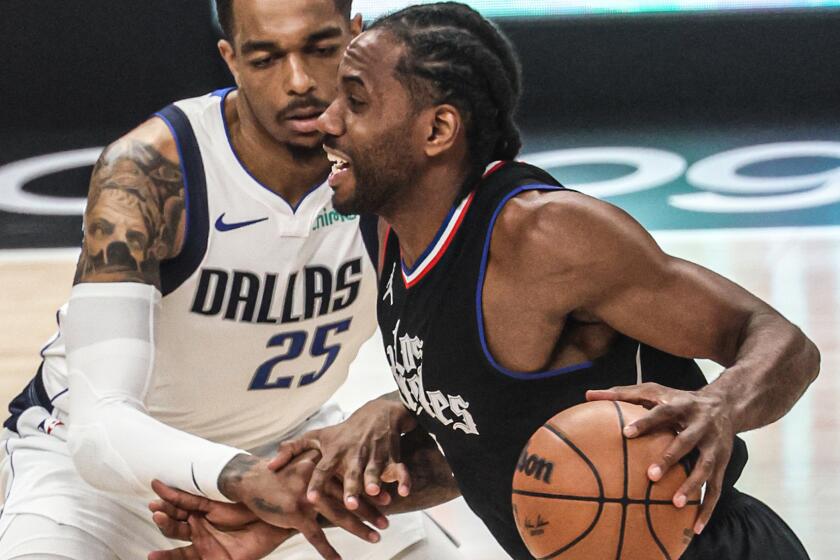In the post-Vin Scully era, what do you want in a baseball broadcast, Dodgers fans?
What do you want in a baseball broadcast?
Two thoughts came to mind on watching the Dodgers’ first television broadcast of the post-Vin Scully era: 1) this is pretty good; 2) this is pretty generic. No longer can the Dodgers boast of a broadcast distinguished above all others.
The Dodgers had the best broadcast, of course, because they had the best broadcaster in baseball history. Scully worked alone, talking to the viewer as a friend, weaving stories between pitches, never having to stop so an analyst could chime in.
These days, of course, a one-man booth is an anachronism. The modern commandment: Thou shalt not go on the air without a play-by-play announcer and a color analyst — or two.
In a sport where a statistical revolution makes “we’ve always done it that way” an unsatisfying explanation for game strategies and roster building, why should a two-man booth be the unchallenged norm?
Craig Calcaterra at Hardball Talk described an analyst as “almost always an ex-player who cares a lot about ex-player things such as where someone learned a cutter and who’s a good guy in the clubhouse.”
After watching the Dodgers’ first post-Scully broadcast, he suggested that a team — maybe even the Dodgers — try a one-man booth again.
Scully’s one-man booth worked so well primarily because Scully was the man. He read voraciously, and not just about sports.
He spotted a trend of bearded players last year, read up on the history of beards, and dropped Deuteronomy, Leviticus, Alexander the Great and Abraham Lincoln into his broadcast without missing a pitch. And, of course, he had done the research to introduce players by their life stories, not just by their statistics.
The new wave of statistics offers a new way to present the game to viewers, but broadcasters should not make the mistake of force-feeding a diet of those statistics to the casual fan. ESPN was deservedly mocked for decorating its broadcasts this week with “win probability,” as if a fan cannot figure out that a five-run deficit in the seventh inning would make for a mighty steep comeback.
Joe Davis, the Dodgers’ new voice, is conversant with those statistics. He also is well aware of his audience.
“People don’t want to tune into a math lesson,” he told The Times.
“This is part of the game now. This is where the game has gone. We have some responsibility to educate them. But there’s a fine line between educating them and bludgeoning them with numbers.”
While there are some fans that might be interested in Davis’ explanation of fielding-independent pitching, there might be others interested in his grilling tips. It’s all in the presentation, either way.
So what do you want in a baseball broadcast? One voice, or two, or more? More statistics, or more stories? What makes a broadcast most watchable for you?
Let us know in the comments.
Follow Bill Shaikin on Twitter @BillShaikin
More to Read
Get our high school sports newsletter
Prep Rally is devoted to the SoCal high school sports experience, bringing you scores, stories and a behind-the-scenes look at what makes prep sports so popular.
You may occasionally receive promotional content from the Los Angeles Times.







